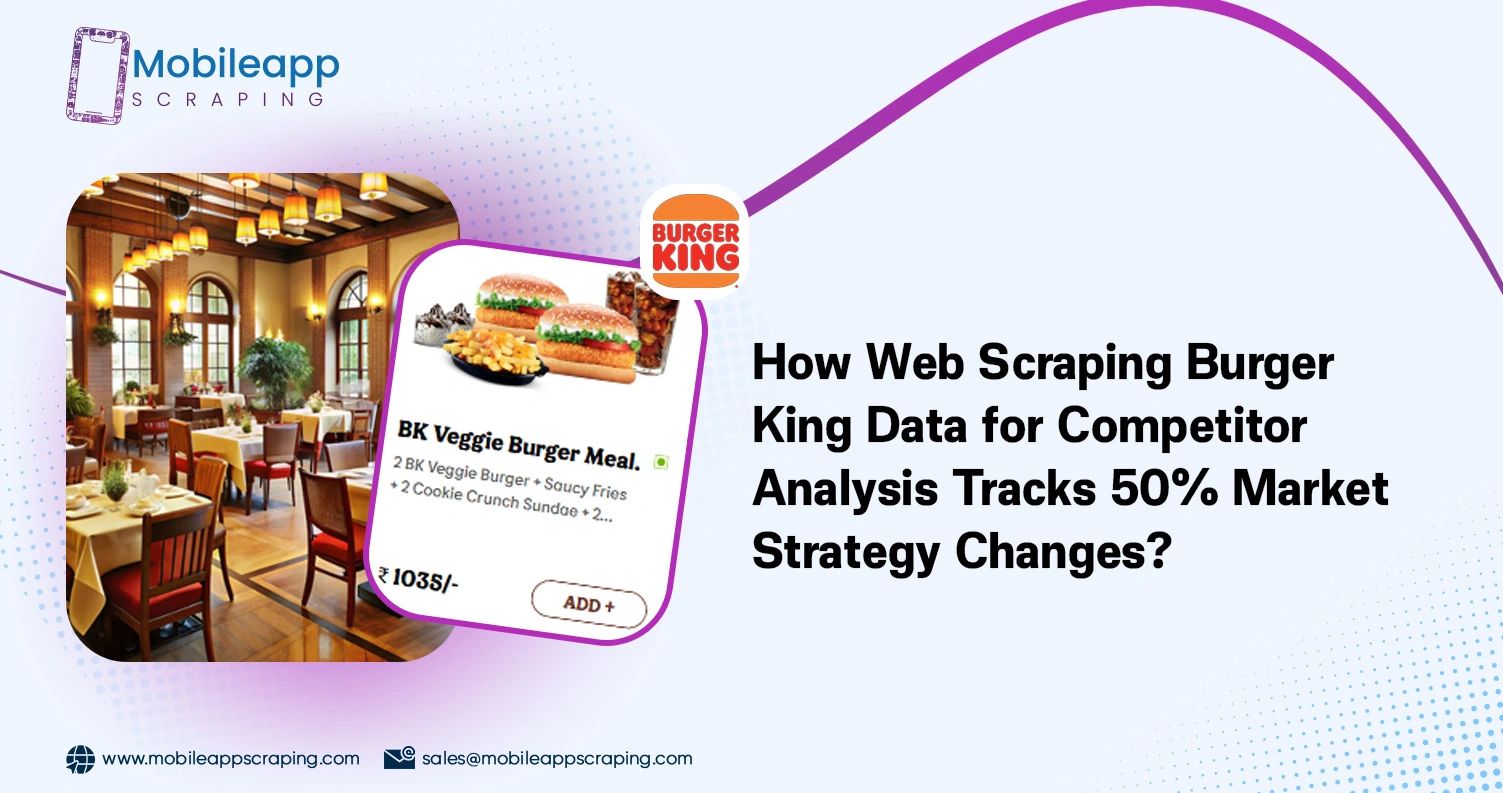
How Web Scraping Burger King Data for Competitor Analysis Tracks 50% Market Strategy Changes?
Introduction
The quick-service restaurant (QSR) industry thrives on real-time data and digital intelligence. Brands that analyze competitors' offerings, promotions, and pricing strategies often make faster and more accurate decisions to adapt to changing market conditions. One powerful way to achieve this is through Web Scraping Burger King Data for Competitor Analysis, a method that enables businesses to monitor how leading players adjust their menus, regional prices, and deals in real time.
By systematically collecting data, analysts can decode how Burger King adjusts its market approach based on demand shifts, seasonal campaigns, or customer sentiment. This form of data collection also supports evaluating consumer behavior and predicting future product launches. Additionally, with the inclusion of Food Delivery Datasets, brands can correlate online delivery data with in-store performance to understand complete customer journeys.
Today’s QSR leaders increasingly depend on scraping tools to transform raw app and website data into actionable intelligence. For example, an automated scraping setup can identify regional promotional differences, helping businesses benchmark against top competitors’ marketing strategies. The insights derived from such systems reveal patterns that can lead to up to 50% improvement in strategic decision-making.
Understanding Data’s Role in Fast-Food Strategy Development
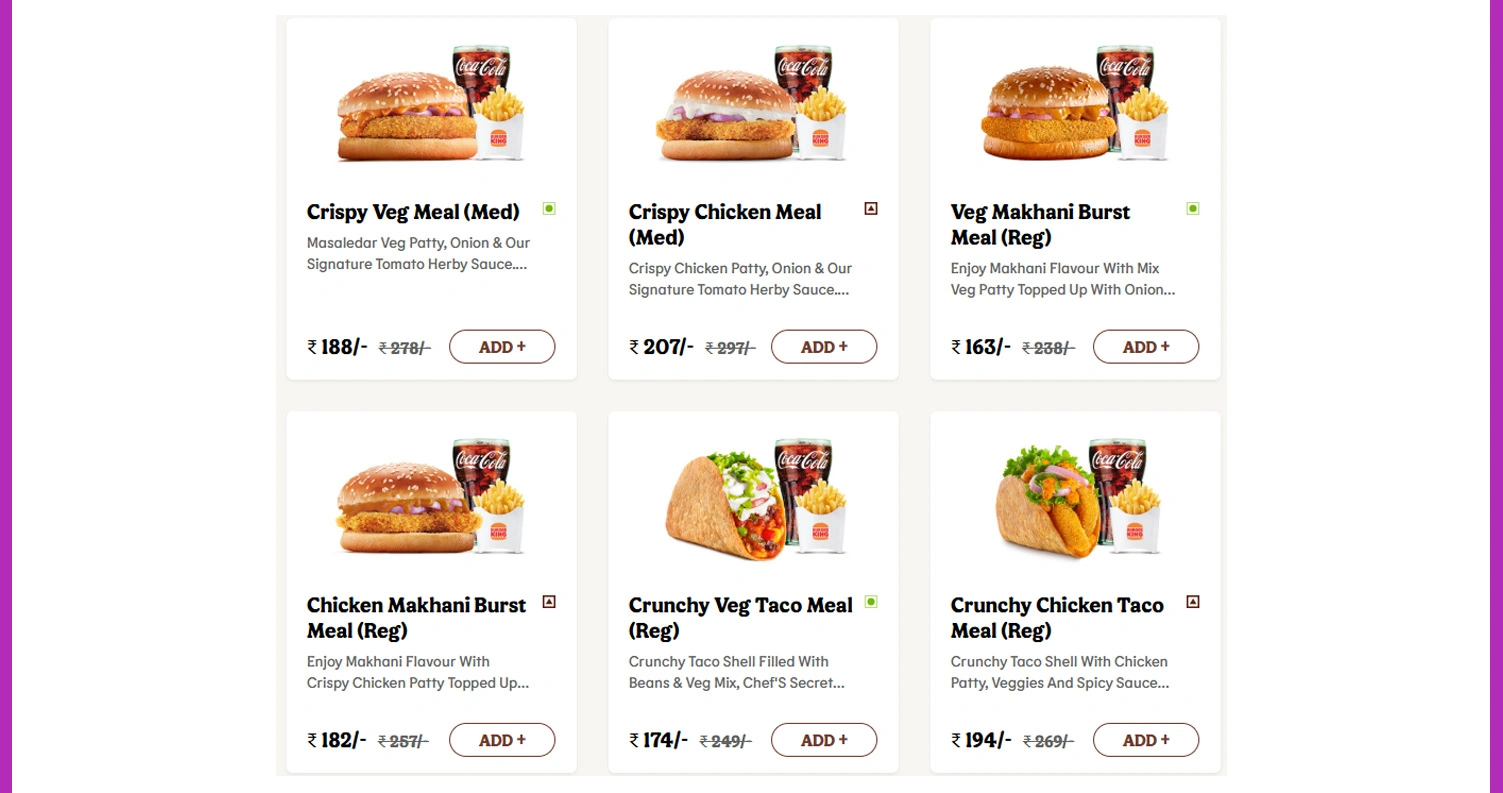
In today’s digital-first food industry, data serves as the foundation for strategy creation. The QSR ecosystem thrives on real-time insights that uncover how competitors adapt to pricing pressures, seasonal demand, and consumer preferences. Businesses can decode these shifts effectively through Extracting Menu, Price, and Promotion Data From Burger King, enabling them to make agile and well-informed marketing and pricing decisions.
This analytical process involves gathering extensive information from multiple digital sources such as restaurant apps, menus, and promotional campaigns. With these data points, brands can recognize subtle changes that would otherwise go unnoticed—like limited-time deals or special bundle offers targeting specific audiences.
Once structured and analyzed, this data provides actionable intelligence for operational and strategic teams. It allows marketing professionals to anticipate competitor behavior and pricing analysts to develop predictive models. Furthermore, by comparing historical and real-time figures, analysts can spot performance gaps across different locations.
| Data Type | Insight Derived | Business Impact |
|---|---|---|
| Menu updates | Identify trending items | Inform R&D and product launches |
| Price shifts | Track competitive pricing | Adjust pricing dynamically |
| Promotions | Detect time-bound offers | Plan matching deals in real-time |
Over time, consistent data extraction empowers QSR businesses to stay agile amid changing market dynamics. By harnessing structured insights, they can proactively respond to evolving consumer demands, ensuring pricing and promotions remain competitive and impactful. This foundation of intelligence forms the core of effective decision-making across all levels of a restaurant brand’s operations.
Extracting Precise Data for Deep Menu Evaluation
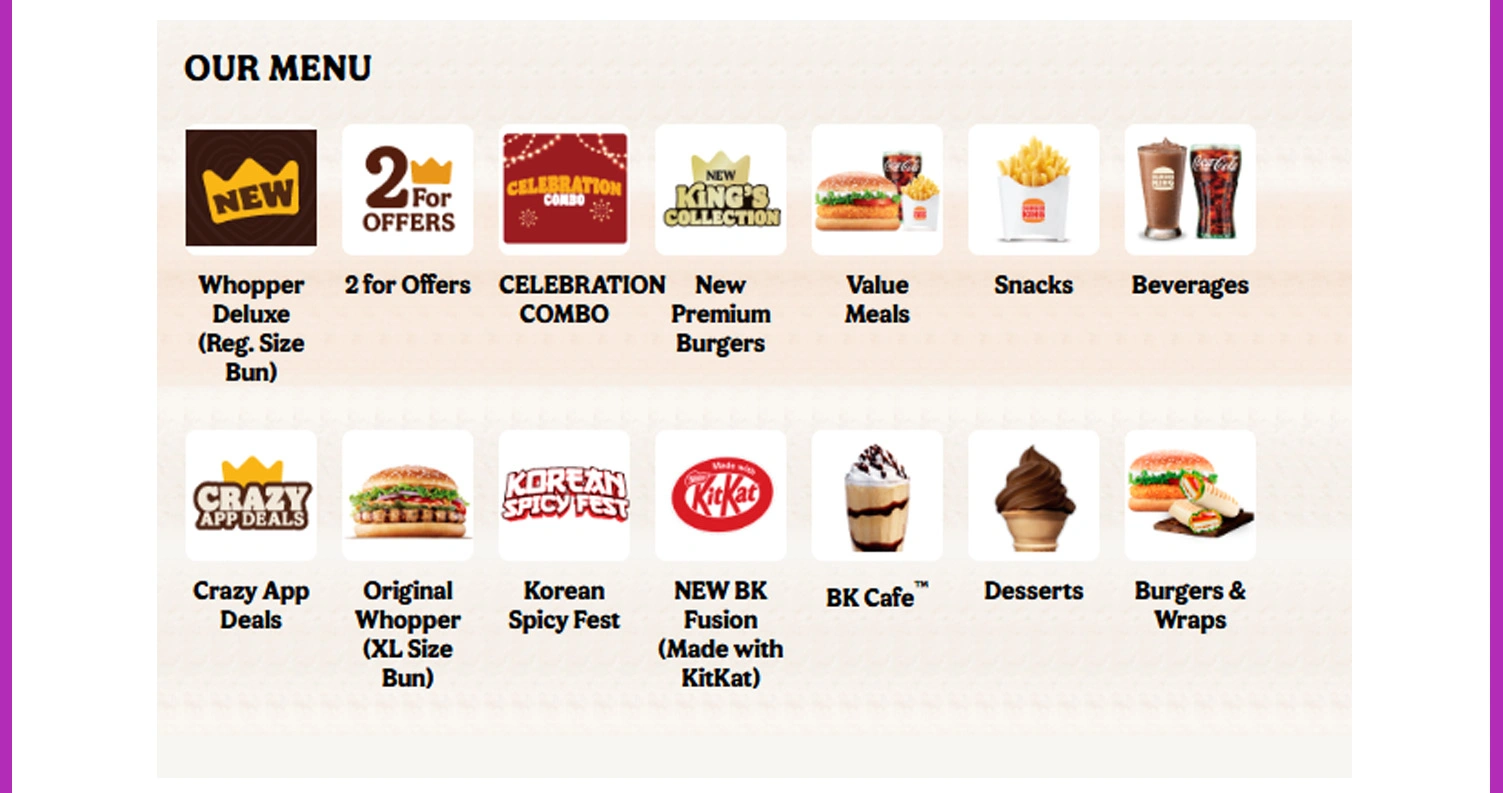
In the competitive quick-service restaurant space, visibility into menu dynamics is crucial. Data-driven organizations rely heavily on automated collection systems that simplify how product, pricing, and promotional details are accessed. Through Extracting Menu, Price, and Promotion Data From Burger King, businesses can unlock valuable information regarding menu diversity, price sensitivity, and localized customer preferences.
These insights highlight the variations between standard and promotional pricing while revealing how new products are introduced to test market performance. By integrating this process with Food Delivery App Scraping Services, brands can obtain synchronized insights across both digital delivery platforms and physical stores.
| Parameter | Extracted Element | Analysis Purpose |
|---|---|---|
| Item category | Main meals, sides, beverages | Identify popular product segments |
| Pricing | Base vs. promotional prices | Evaluate competitive positioning |
| Promotion frequency | Seasonal or recurring | Plan counter-promotions |
This structured approach eliminates the inefficiencies of manual monitoring. Analysts can now visualize menu layouts, pricing bands, and promotional timing through interactive dashboards. These insights make it easier to measure campaign performance, align regional pricing strategies, and maintain consistency across markets.
Statistical models built from this extracted data also assist in anticipating consumer behavior. When brands track fluctuations in combo deals or limited-time offers, they gain an edge in designing better marketing campaigns and refining overall pricing strategies for higher profitability.
Transforming QSR Monitoring with Advanced Automation Tools
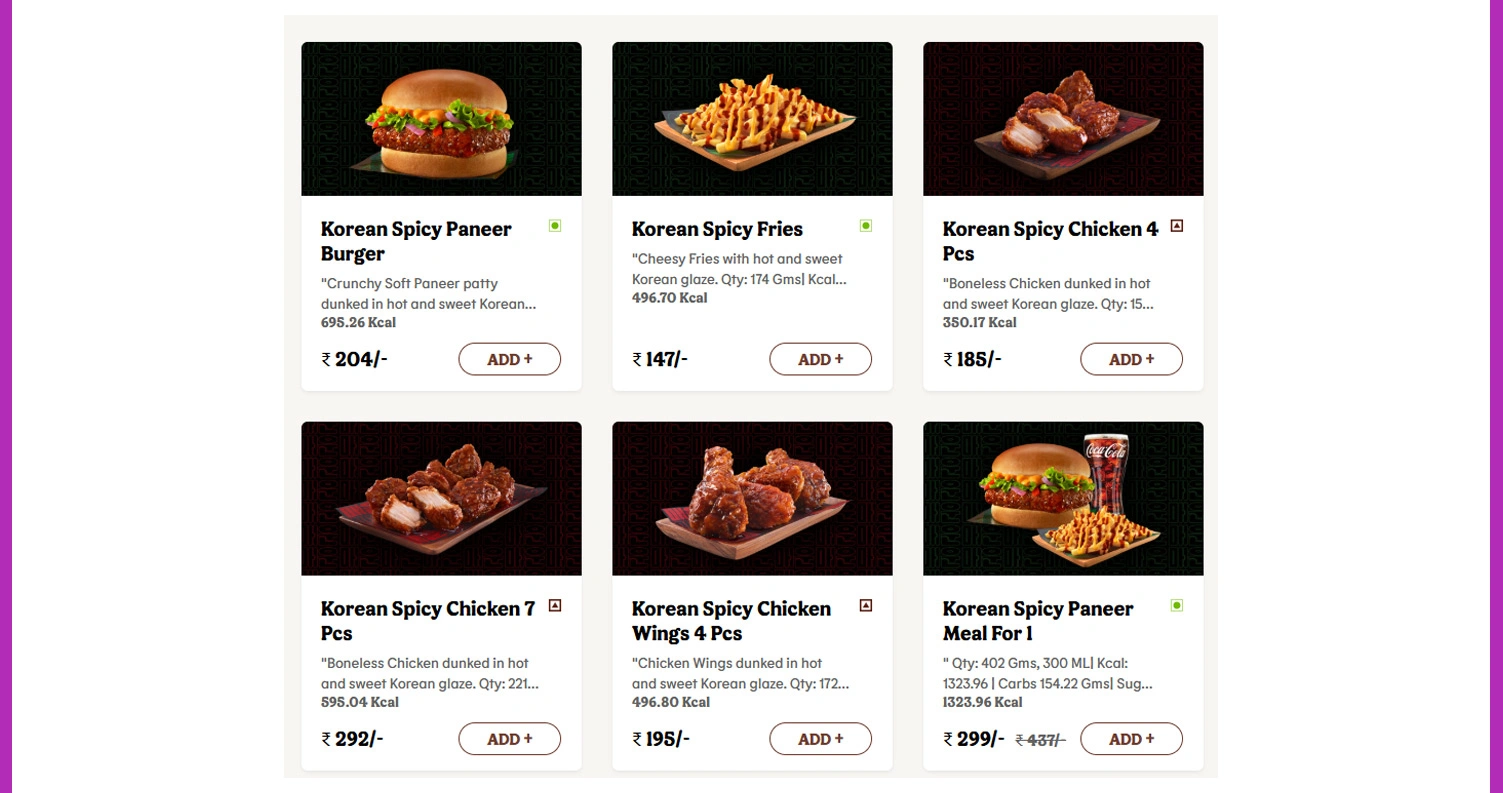
Automation is at the heart of modern data collection systems. Instead of relying on traditional manual tracking methods, QSR enterprises employ technology to capture precise and timely insights about their competitors. This approach helps brands collect and process information faster using Burger King Menu Data Extraction, a solution that enhances efficiency and scalability across multiple data sources.
Automated tools ensure consistency in monitoring menu changes, price updates, and promotional variations, providing stakeholders with live visibility into evolving trends. These tools don’t just reduce data collection time—they dramatically improve data accuracy and update frequency, ensuring that decision-makers always rely on the latest insights.
| Automation Metric | Before Automation | After Automation |
|---|---|---|
| Data collection time | 5–6 hours | 15–20 minutes |
| Accuracy rate | 75% | 98% |
| Update frequency | Weekly | Real-time |
Automation brings immense operational benefits beyond speed and accuracy. It minimizes errors, standardizes datasets across regions, and enables scalable data pipelines. Marketing and analytics teams can instantly identify pricing inconsistencies, promotional gaps, or missed opportunities.
Ultimately, automated data collection empowers fast-food companies to act swiftly in an ever-changing competitive landscape, using structured intelligence to guide every key pricing or marketing move efficiently.
Evaluating Market Gaps Through Performance Metrics Comparison
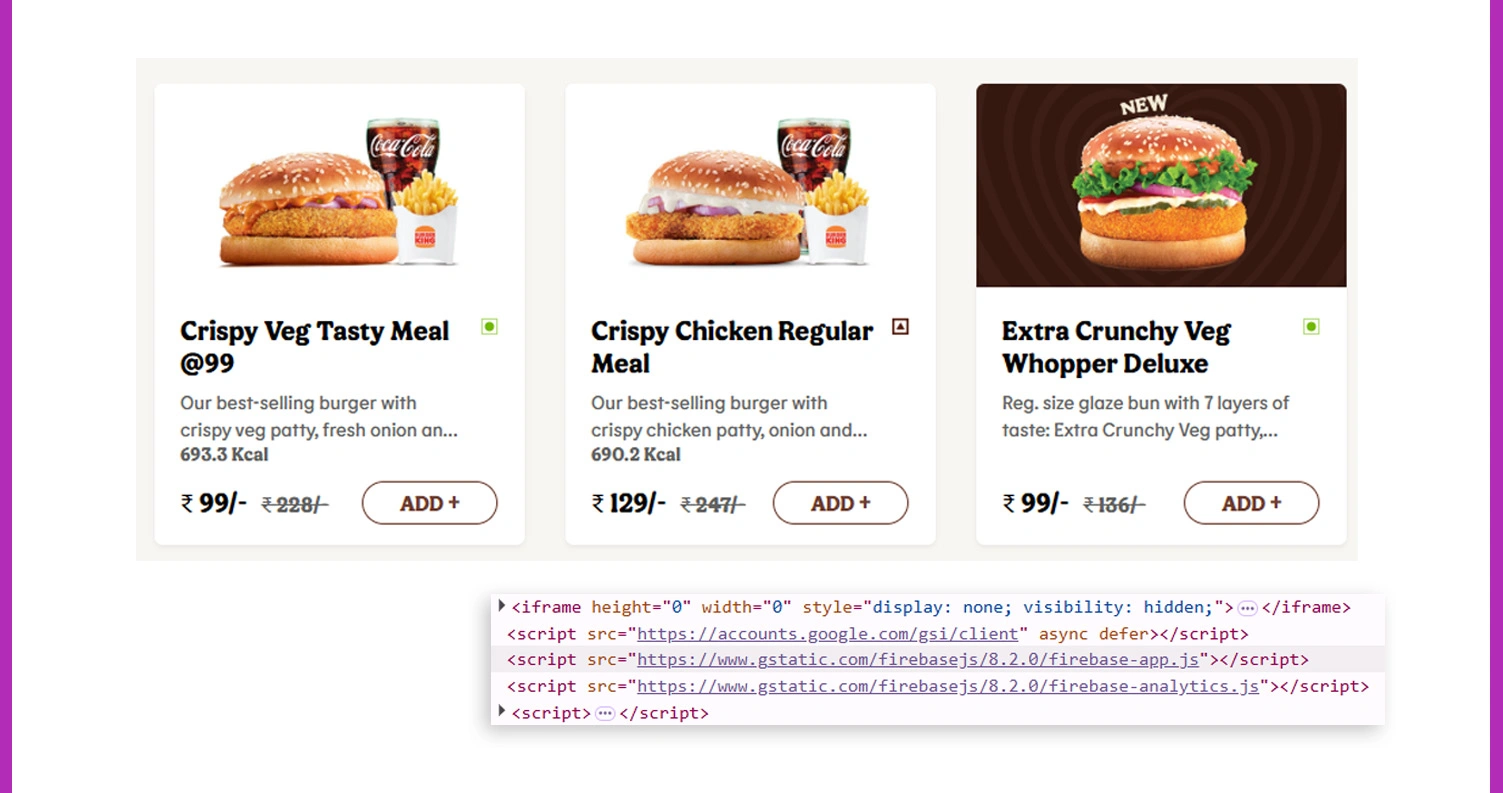
Comparative analytics has become a game-changer in assessing market positioning and strategic alignment. By comparing menu, pricing, and promotional data across different territories, brands can derive a clearer picture of how competition performs at a regional level. Using Burger King Menu Scraper API, analysts can organize and compare structured datasets, identifying performance variations in both pricing and consumer engagement metrics.
Through these comparative evaluations, businesses establish performance baselines, enabling better Competitive Benchmarking against market leaders. This process helps assess the frequency of promotions, the speed of new product introductions, and the depth of discounting strategies.
| Metric | Region A | Region B | Benchmark Insight |
|---|---|---|---|
| Average meal price | $6.20 | $5.80 | Region B uses cost-led strategy |
| Promotion frequency | Weekly | Monthly | Region A engages more frequently |
| New product launches | 3/month | 1/month | Region A is more experimental |
Comparing this data uncovers actionable trends. For instance, regions with frequent promotions might have higher engagement but lower margins, while those focusing on limited launches can achieve premium positioning.
Businesses can refine regional marketing approaches by interpreting these patterns, helping them strengthen pricing strategies and product development pipelines to achieve sustainable market growth.
Understanding Offer Composition and Dynamic Product Positioning
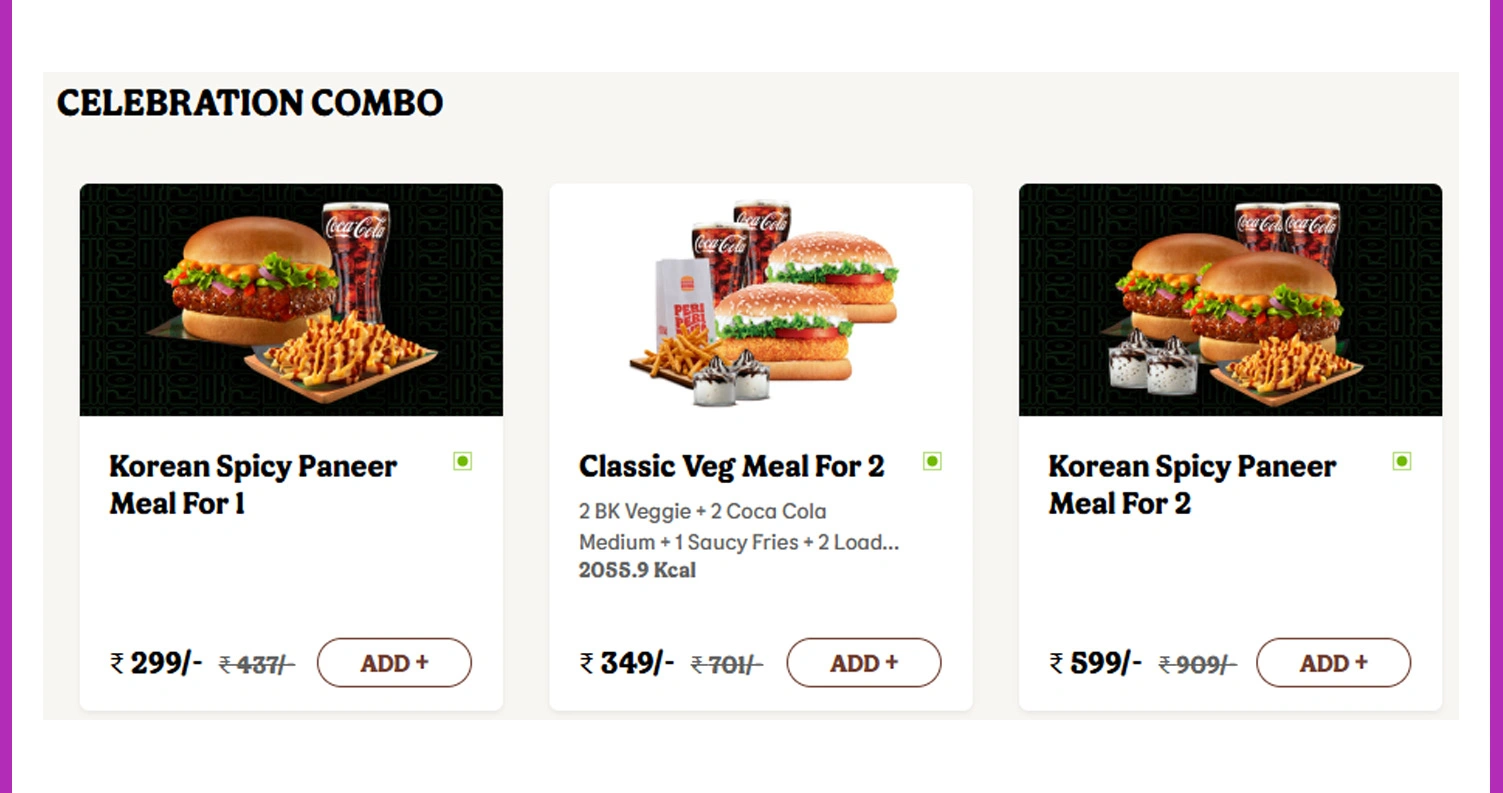
Fast-food companies must continuously assess how product bundles, discounts, and promotional timing affect customer behavior. Data-driven analysis using an Automated QSR Data Extractor allows these organizations to capture structured insights about dynamic pricing, cross-promotional offers, and bundle deals, enabling smarter marketing initiatives.
Understanding such datasets helps companies detect which offers convert best, what price points customers find most attractive, and which promotional methods drive the highest order frequency. It also provides a framework for evaluating product positioning relative to competitors.
| Offer Type | Discount Value | Conversion Rate |
|---|---|---|
| App-only combos | 10% | 42% |
| Time-limited deals | 15% | 56% |
| Bundle offers | 20% | 61% |
Through consistent evaluation, marketing teams can identify campaigns that yield maximum engagement. Moreover, combining this data with regional feedback reveals consumer behavior trends that influence purchasing decisions.
Such insights lead to improved campaign ROI, better product packaging, and strategic offer alignment with consumer expectations. The structured understanding of promotional performance gives QSR brands an advantage in shaping pricing and product strategies that enhance profitability.
Leveraging Large-Scale Data for Business Intelligence
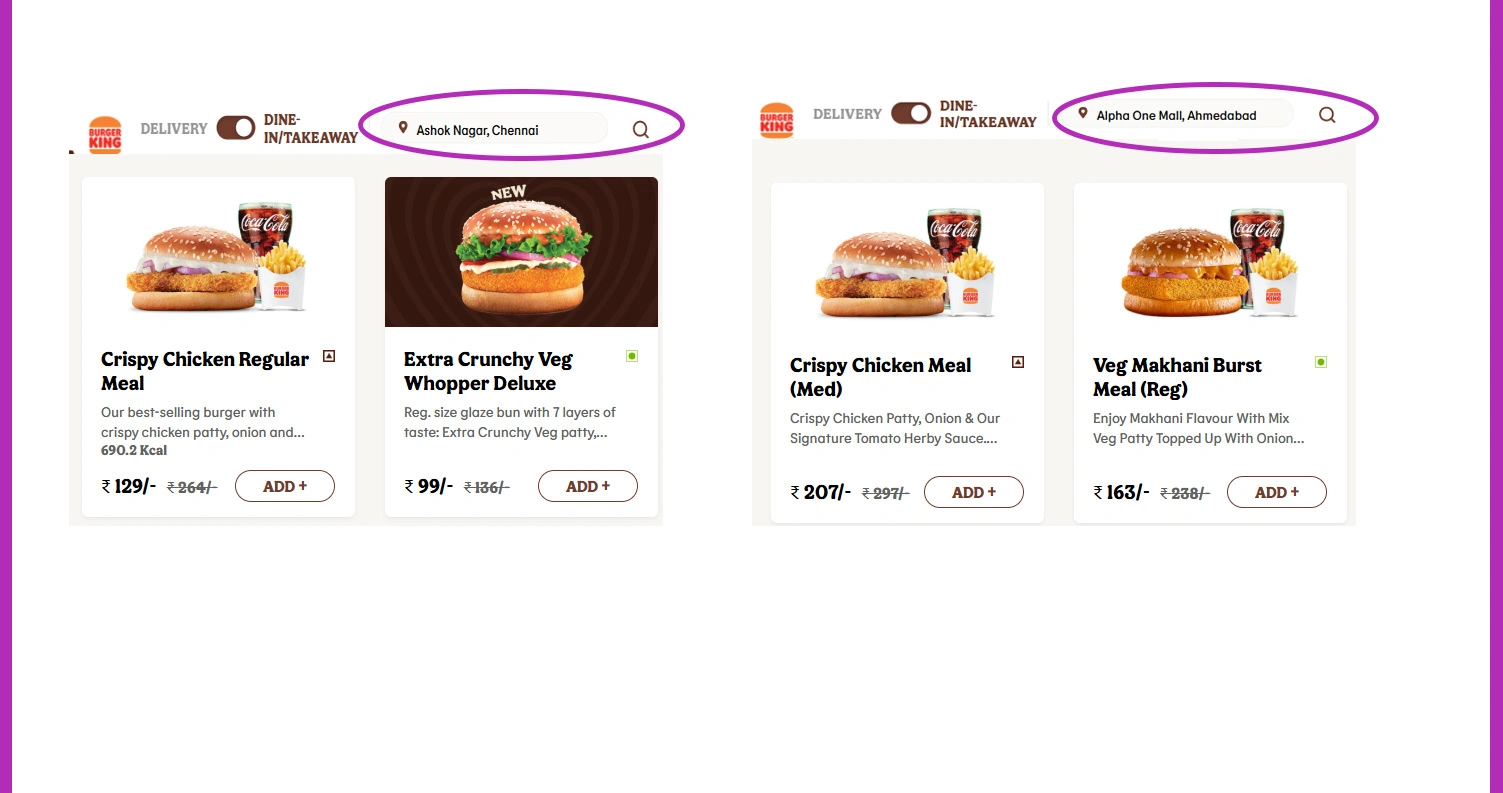
At the enterprise level, the ability to synthesize insights from massive data streams has become a defining factor in market success. By employing automated tools to Extract Burger King Product Offerings, QSR organizations can monitor product evolution, regional pricing variations, and campaign performance across global operations.
These insights reveal how menu adaptations, limited-time meals, and cross-promotions impact overall performance. Correlating this information with QSR Market Trends enables brands to evaluate how their actions align with broader industry shifts.
| Insight Type | Application | Value Delivered |
|---|---|---|
| Product-level trends | Menu forecasting | Demand prediction |
| Regional pricing insights | Strategic pricing models | Improved margin accuracy |
| Promotions overview | Campaign assessment | Faster optimization |
Advanced Enterprise App Crawling solutions make this process efficient and compliant with large-scale data requirements. Businesses can standardize multi-regional data, strengthen forecasting accuracy, and optimize menu pricing in real time.
Such comprehensive intelligence supports executive decision-making, marketing strategy adjustments, and long-term planning, ensuring consistent growth and improved competitiveness in a rapidly shifting QSR market.
How Mobile App Scraping Can Help You?
Businesses aiming for data-driven decision-making can benefit immensely from Web Scraping Burger King Data for Competitor Analysis. We enable real-time tracking of digital menus, pricing updates, and time-sensitive promotions, offering valuable visibility into market movements.
Here’s how it supports competitive advantage:
- Enables continuous monitoring of QSR app data.
- Provides structured, clean datasets ready for analysis.
- Supports dynamic pricing evaluation.
- Detects regional and seasonal promotion variations.
- Improves forecasting of menu updates.
- Reduces manual data entry errors.
By integrating these scraping insights with marketing analytics, enterprises can identify untapped opportunities. Moreover, combining this intelligence with Burger King Menu Scraper API further streamlines workflow automation and enhances responsiveness to shifting consumer demands.
Conclusion
Data-driven insights allow businesses to craft more precise, region-specific strategies. The ability to extract and analyze data through Web Scraping Burger King Data for Competitor Analysis has transformed how QSRs react to evolving customer behaviors and competitive dynamics.
By integrating automated systems like Extracting Menu, Price, and Promotion Data From Burger King, companies can achieve real-time visibility, reduce analysis time, and improve operational adaptability. Ready to transform your fast-food intelligence strategy? Contact Mobile App Scraping today to start your data-driven journey!